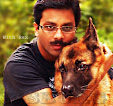Puppy Socialization Checklist For your German Shepherd
Socialization is an inseparable component when it comes to raising your German shepherd puppy and should be started as early as possible preferably at an age of 4 to 12 weeks. Proper socialization can make your dogs life balanced and calm, because through an extensive process of exposing your dog to a wide range of situations, sights and sounds your dog gains experiences and learn to consider such situations as harmless and not frightening. Socialization is not just for puppies. A dog can be socialized to different situations throughout its life. By socializing your GSD puppy you will help him/ her to respond to the entire range of unusual situations in a friendly manner with a calm temperament.
Why Socializing your GSD puppy?
The main purpose of socialization is to teach your dog how to accept and respond to certain situation that he may or may not come across to frequently in his day to day life. The aim is to develop confidence in your dog so that S(he) doesn't react fearfully in specific situations.
How to socialize your puppy?
Applying force to put your puppy in a situation that daunts him/her is a big NO! Force can only worsen up the thing. If your puppy has already reached the adolescent stage or even over, and yet not been properly socialized you need to technically put him/her into a rehabilitating session to help develop confidence. Very importantly, the process of socializing your dog should be consistent and spontaneous, and it is all about helping him gain confidence not forcing him to stay in situation which s(he) doesn't like or is scared of. It is about exposing your puppy to a wider range of situations. There's not limit wider the range of situations, better it will be for your puppy to lead a balanced life. Socialization is a strategic process to help your dog gain confidence.
Here is a checklist for socializing your German Shepherd puppy
Known and Unknown People
- People (new born, toddlers, children, teens, adults and senior citizens)
- People (males, females and children with umbrellas, helmets, masks, hats, glasses, strollers, wagons, parcels, sack)
- People with disabilities (people on wheelchairs and crutches)
- Men with mustaches and/ or beards
- Bikers, cyclists, skateboarders
- People with unusual movement (drunk and people with disabilities)
- Men, women, teenagers and older children in uniform
- Children playing and running around
- People whom your dog have to meet quite frequently (friends, relatives, family doctors, veterinarians, gardeners, plumbers, electricians, tutors etc.)
- People from different races and ethnic groups
- Huge crowds and gatherings
- Automatic gates and Elevators
- Crowd dancing
- Jammed traffic
- Moving vehicles
- Falling things (broken branches of trees, dried coconut leaves etc.)
- Other animals (other pets, livestock, fowl)
- Water mass (pools, ponds and rivers)
Sound
- Thunder claps and sound of storm and heavy rain
- Huge crowd making noise
- Sound high fidelity speakers
- Honking vehicle horns
- Noise from vehicle engines
- Noise from machines
- Sounds of cracker
- Noise of other animals (larger dogs, cows and buffaloes)
Others
- Stairs
- Terrace
- Vacuum cleaners
- Hair dryers
- Movable electronic toys
These are just a few common situations, sights and sounds, which you should consider socializing your puppy for. There is actually no end to the list. You may consider exposing your dog to as wider range of situations as possible to develop confidence. Socialization is essentially important for many reasons and one of them is dog-bite prevention. Many incidences of dog attacks and bites have been critically scrutinized by canine behaviorists. Lack of socialization has been found to be one very common reason behind most of the unpredictable attacks and bites.

























0 comments :
Post a Comment